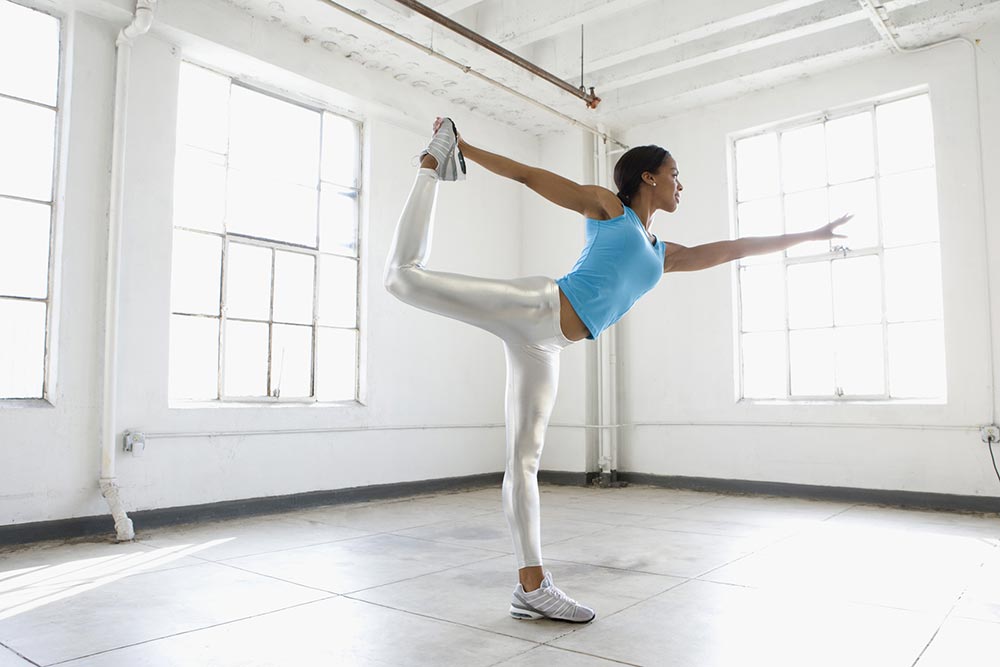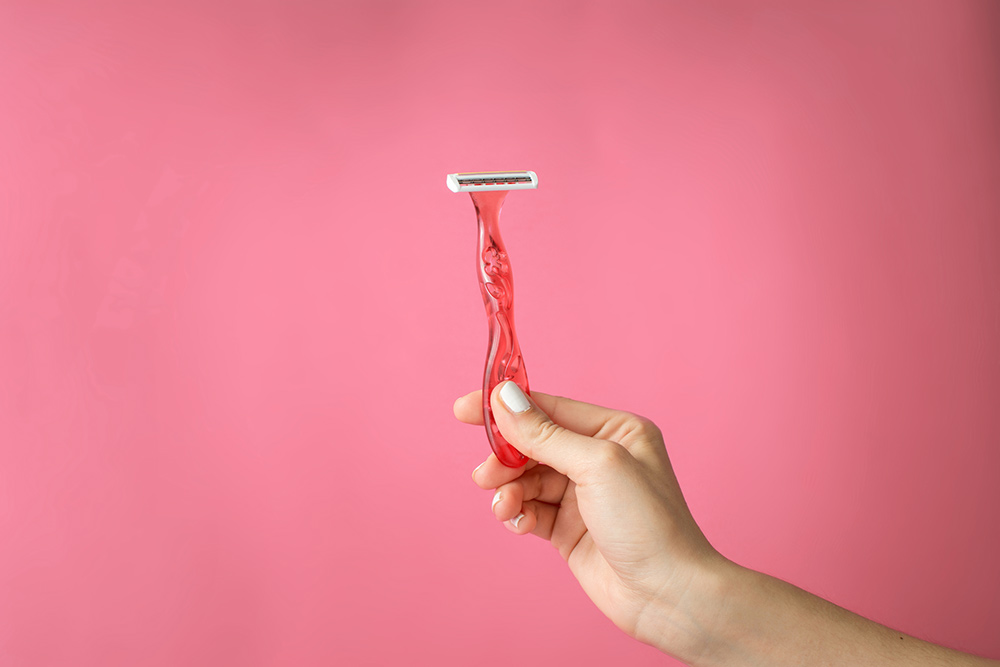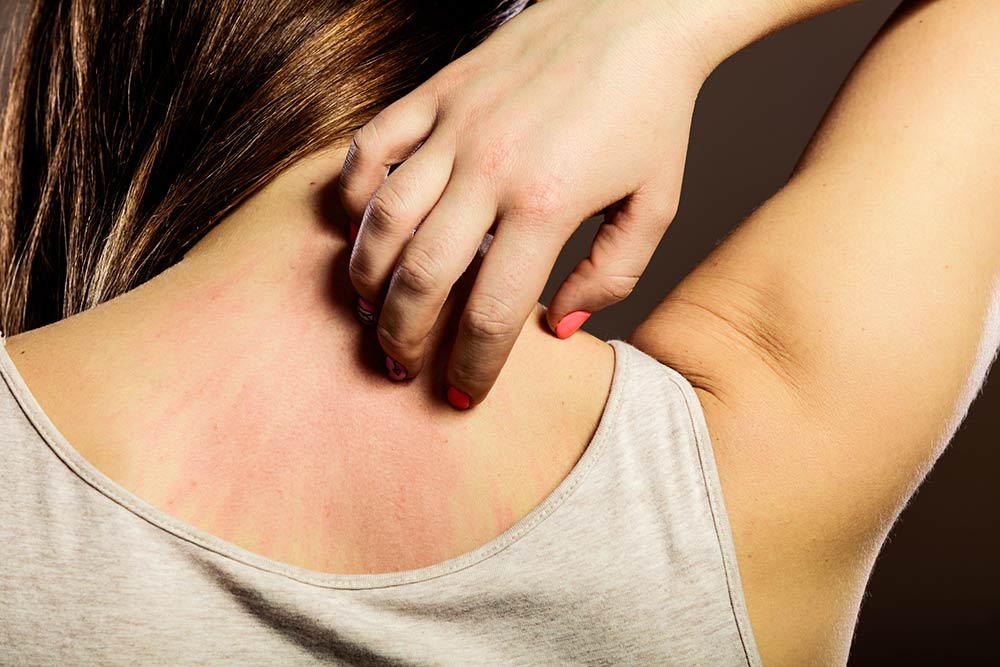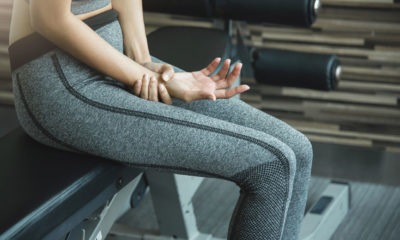Health
12 Really Awkward Health Questions Answered
Some questions are so embarrassing you don’t even want to Google them, which is why we’re here. We ask the questions and get the answers, so you don’t have to.
Q: Why do I leak when I do a squat?
A full and deep squat opens up the pelvic floor… if, like many women, you find it hard to target your pelvic floor muscles, it could be that your weak muscles allow a little pee to escape. The good news is that squats are also one of the best ways to strengthen your muscles and prevent the leakage.
The key is to engage your glutes fully during your squats, and try to avoid tucking your bottom under so that the entire region is lengthened. While this might result in a little leakage to begin with, you should start to see real improvements in a couple of weeks. Next, you can test your leakproof pelvic floor muscles on a trampoline!
Q: Why do I keep farting during yoga?
“Yoga asanas work deeply on our internal organs so tends to get things moving,” says yoga teacher Nikki Wilkins (lightcentremoorgate.co.uk). But, says Wilkins, there are some poses that are more likely to cause an embarrassing toot than others.
“In particular the Happy Baby (Ananda Balasana) and Downward-Moving Life Force pose (Apanasana) which does what it says on the tin by pressing into the ascending and descending colon.
Any asana that allows us to push against our lower digestive system against another force (ie our legs or the floor) will start to move trapped gases around.”
And then there are those other farts. “Vaginal farts tend to happen after inversions, we literally temporarily fill with air upside down, and what goes in must come out!”

Q: I always need to go to the bathroom after a run, particularly if it’s a race. Why?
No one is really sure what triggers this well-known phenomenon – it’s probably not the kind of thing that’s easy to check in lab conditions, nor from questioning runners! But it is quite a common problem.
Nutritionists and physiologists theorize that it’s down to the physical movement of your internal organs, greater blood flow to your muscles (so away from your intestines), and possibly pre-race anxiety.
Whatever the reason, you’ll know that it can produce an awkward result especially as the bathrooms at the end of a race often have long lines. As you prepare for a big race, test yourself – avoid high-fiber foods before you run (so no beans, bran or fruits) and then gradually re-introduce foods so you can see which foods have the worst effect and how much of a particular type of food your body can handle.
Also, avoid sweeteners, which can have a laxative effect, and avoid eating anything at all around two hours before the run.
Q: Why is a hair growing… there?
Here, there and everywhere, young, old and in-between, you never know when a random hair might appear somewhere. From way down your thigh, to your shoulders or toes, hairs grow everywhere, and it’s only when one of them decides to come out thick and wiry that you sit up and take notice.
The average woman has around 5 million hair follicles and any one of these can decide to go rogue and suddenly become thicker, coarser and longer. Which can mean you’re suddenly sporting a beard-like hair in the middle of your cheek. Is it a sign of an ominous future as the bearded lady?
No, the hair has likely been there for months, but occasionally an increase in blood supply to the follicle along with a misplaced cell can result in inch-long hairs growing in places you always relied upon as being hair-free.

Q: Does having bigger breasts make me more likely to get breast cancer?
If you have big breasts and a big belly, then yes, there is a chance your overall weight could up your risks of cancer. If your curves are natural, i.e. not down to being overweight, then you shouldn’t worry more than any other woman.
That said, larger boobs can make it more difficult to detect a lump – so if you do develop breast cancer, it could be detected later which in itself is a problem.
If breast cancer is diagnosed early, the five-year survival rate is 99%; once the cancer has spread to lymph nodes, that figures drops to 85 percent, further than that and the figure falls to 26$. Book yourself a doctor appointment to have a proper check.
Q: I’m a real sweaty Betty lately. Why?
It’s most likely your hormones. For some women perimenopause starts in their mid-30s and is characterized by hormonal changes. It doesn’t mean you’re about to go through menopause immediately, it can take years to pass through perimenopause.
See your GP to check your hormone levels so they can advise you about treatments, which might include hormone replacement therapy or other ways to ease the symptoms. Your GP can also check your thyroid, which can also trigger excessive sweating.
If you can rule out hormones, check your meds. All kinds of medications have excessive sweating as a possible side effect, including antidepressants and pain relievers. And if that still doesn’t provide any answers, consider your blood sugar levels.
If you also often feel dizzy or weak, it could be you’re suffering with low blood sugar. See your doc.

Q: Why is my poop green?
Coffee, mud, chocolate or fudge – any shade of brown is considered fine, but occasionally what you eat can play tricks on the color. Think about what you’ve eaten lately and also what meds you’ve taken.
Certain medications can also change the hue and the time to be concerned is if your poop is red or black (not dark brown, but black) and you have other symptoms such as cramps or vomiting. If that’s the case, see your doctor.
Q: What’s the strange brown discharge?
It’s possible that you’re spotting – having a light period between the real deal. Natural fluctuations in your hormone levels, taking a new contraceptive, stress, antibiotics – all of these can trigger this and because the blood is usually old, it can be brownish red or brown.
If it continues even after a couple of months, see your doctor to have your hormone levels checked, rule out infection and look at ways to solve the issue.
Q: Why do I keep getting yeast infections?
Is it because I’m training too often? OK, here’s the thing – while you can get a yeast infection from taking antibiotics and hormonal changes, you can also get it from working out. Well, not working out itself, but what you’re wearing while you work out.
Because while yeast in your vaginal area is normal, if you enclose your lady parts in tight-fitting non-breathable fabric such as leggings, that yeast can go crazy and multiply.
It’s this excessive growth of yeast that creates an infection, and along with it the itchiness and discharge. So, when you’re working out give your lady flower some air – use breathable undies and opt for cotton which is absorbent and won’t hold the heat or moisture in – and save the snug-fitting stuff for special occasions only.
Q: Why does my skin get itchy after I’ve worked out?
Sweat is a wonderful thing, keeping you cool on a hot day and excreting stuff your body doesn’t need, but the opening of your pores as you sweat can also put your skin at greater risk of irritation or allergy response.
If you’re using a new washing detergent which has been fine on your dry skin, a combination of sweat and your open pores can allow some of that chemical to irritate your skin and result in itchiness.
If it continues or you notice other symptoms, such as breathing difficulties, see a doctor. If it is allergy-based, using an antihistamine can fix the problem.

Q: Why do I have weird bumps on the skin of my upper arms and thighs?
“Chicken skin” is a common problem but it’s simply when keratin, the stuff hair is made of, clogs up hair follicles creating that hard little bump. It’s called keratosis pilaris and affects one in two people at some point in their lives.
It should just go away on its own, but try gently exfoliating and moisturizing.
Q: If I used my lipstick when I had a cold sore, should I chuck it?
Cold sores are caused by the herpes simplex virus and can be transmitted via lipstick, but if you’ve already had a cold sore it means you’ve already been infected. Once the virus enters your body, it remains there, dormant until something – stress, sunlight or illness – triggers it to reactivate.
Some people will experience it once and not have it reoccur while others will experience new cold sores every now and again throughout their lives.
So, while there’s little point in throwing out your lipstick, instead you can shave off the upper layer so you can be sure what you’re putting close to your mouth is as germ-free as possible.
For more health advice, sign up for the TRAIN for HER newsletter.






















